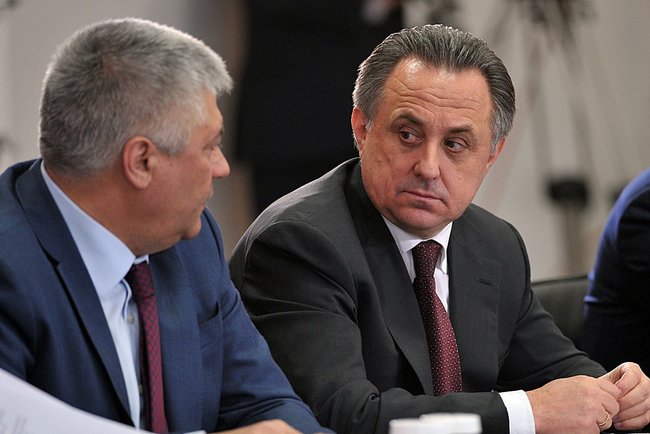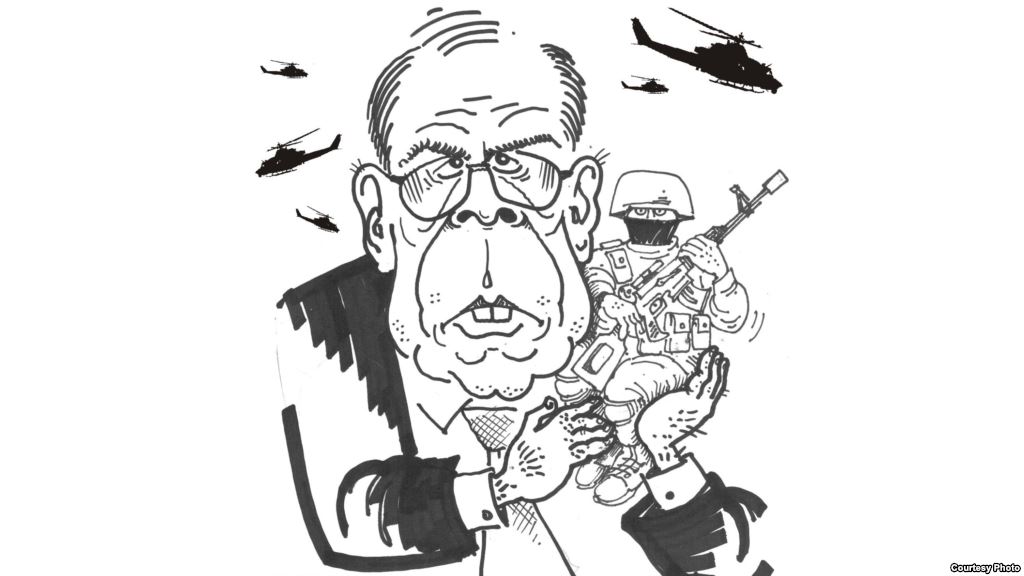Editor's Note
Just before the active stage of the invasion of Crimea, Russia held the 2014 Winter Olympics in Sochi. The invasion unfolded amid Sochi 2014 Paralympic Winter Games and during the gap between the two events. Russia broke fundamental rules of the international relations by invading the Ukrainian region of Crimea and its further annexation, and Russia did just the same at both major international sports events.
On December 2, the news broke that the International Olympic Committee (IOC) decided to sanction Russia’s participation in the 2018 Winter Olympic Games. The Olympic scandal is a reminder of two things: That Russian authorities do not shy away from systematically breaking fundamental rules in sports, in media, and in international relations; but also that Russia is facing more and more consequences for these actions.
Little green men
When Russian military forces occupied the Ukrainian peninsula of Crimea in March 2014, while wearing uniforms without insignia, Russia broke international law and violated a series of international agreements; but Russia also broke the basic rule that a soldier must identify himself as a soldier. The operation bought Russia time by creating some initial confusion about who the “little green men” were; however, when clarity was reached, Russia faced sanctions from the side of the international community – on top of the non-recognition of the illegal annexation of Crimea.
Faking the news
Russian authorities use the media they control, and influence those media which are loyal to them, to systematically spread disinformation. The disinformation aims at creating confusion and rifts – in foreign societies as well as in Russia. What is designed to look like journalism and traditional government communications comes with a fundamental acceptance of not having to tell the truth. This is what makes the pro-Kremlin disinformation campaign different from other cases when governments exercise “soft power” or push an agenda; the Russian campaign’s distinctive feature is its willingness to break the fundamental rule in any communications that one can perhaps be selective with the truth but cannot deliberately manipulate facts, fabricate evidence or simply lie. Russia has faced consequences for this, most recently in the form of seeing its international flagship, RT (Russia Today) sanctioned as a “foreign agent” in the United States. The European Union responded to the Russian disinformation campaigns by setting up the East StratCom Task Force in September 2015.
Doping the Olympics
Just as is the case with disinformation, i.e. the strategic use of “fake news,” government-sponsored doping demonstrates disrespect of rules at a strategic level – in this case, the rules of sports and competitions. Faking your way to a medal is not very different from faking your way to a land grab, or from faking the truth in news reporting. This week, The International Olympic Committee joined the voices in the international community that stand united in making it clear that these policies and actions come at a cost for Russia. The international response to the violations has limited Russia’s freedom to act with these schemes and inflicted reputational damage on Russia’s authorities.
Read also: Hybrid Olympics, hybrid war with Ukraine, hybrid Russia
Editor's Note
Meanwhile, Russia is preparing to hold another major sports event in its territory, the 2018 FIFA World Cup. Head of the unrecognized Crimean Football Union, a football organization established in occupied Crimea, has recognized that it's unlikely for the occupied Crimea to see the Fan Fest venues for 2018 World Cup. However, the question remains, why Russia is still not deprived of right to host sports events.
Read also: MEP Harms calls to boycott 2018 World Cup in Russia
Further reading:
- Commentary: Means, goals and consequences of the pro-Kremlin disinformation campaign
- Three things you should know about RT and Sputnik
- Ukraine: Crimea three years on
- A compass for the jungle of conspiracies (on Olympic doping)
Read more:
- MEP Harms calls to boycott 2018 World Cup in Russia
- Paralympics 2016: how Ukrainians fought their way into the Rio top three
- Will Ukrainians watch the 2018 FIFA World Cup? Dilemma for Ukraine’s Public Broadcaster
- Iron will and steel muscles: Invictus Games selection held in Kyiv (photo report)
- Hybrid Olympics, hybrid war with Ukraine, hybrid Russia
- Russian football louts in Marseilles part of Putin’s ‘hybrid war’ against the West
- Meet Union Basket Lviv: a wheelchair basketball team for people with disabilities
- Football ‘Ultras’ Defend Freedom





